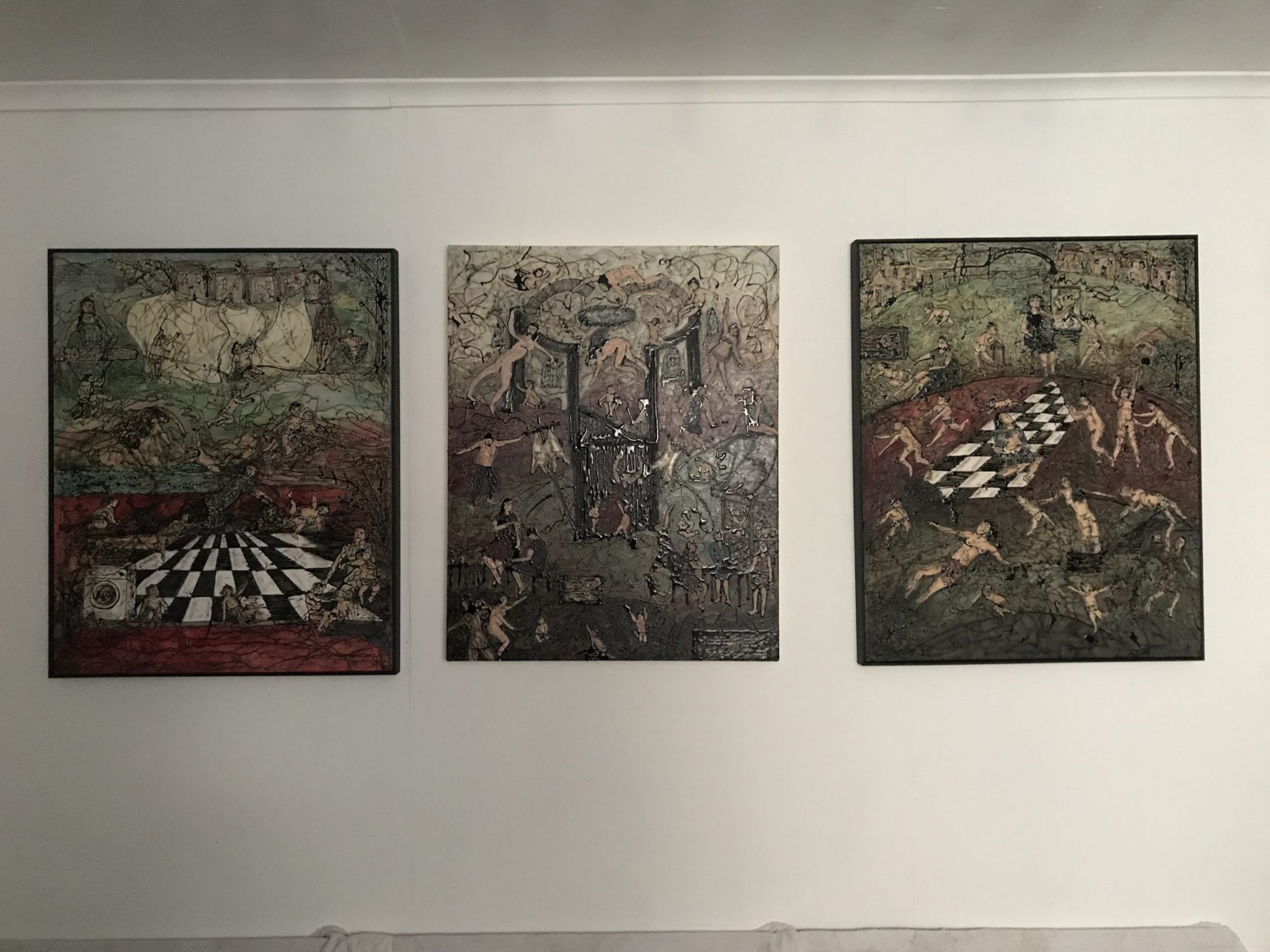Artcore studio blog no 6 – I couldn’t be in Derby last week as I had to go home to work and earn some money. I also had my ‘Domestic Dystopias’ paintings on show. ‘Domestic Dystopias’ are a colourful series of paintings using bitumen paint that about homes, women, children. Intended to be dark and funny, I realise I’m not entirely happy with the overdramatic use of ‘dystopia’. I had merely wanted to question ideality in the home and find the opposite of Utopia. So I asked: ‘What lies in between ‘utopia’ and ‘dystopia’? The reply I received was: ‘Everyday life’.
Today I just want to be able to sit in the studio and make new work. I’m still surprised sometimes that I make figurative work yet they ‘perform’ in ways that I can’t. The small clay figures take a long time to create. They must ‘fit’ an object and tell a story of their own that links to stories that I am collecting from people about their domestic lives. They can be kitsch, classic, awkward yet the longevic stoneware clay has its own aesthetic.
These small sculptures do not illustrate the stories literally, they create a conversation between object and subject, use gesture and speak of value, though they are mixed metaphors since the found objects are mostly rubbish I have picked up on the streets of Derby.
But there are so many other things to juggle, so I can’t just sit here making. I have passed all the tests in juggling. I have been a single working mum with 4 children and still made time to make art. All those things we do for family, we do for love. Yet it still makes me angry. ‘Home work’ is often just not fair and certainly not equal.
Women do the lion’s share of physical care for others and sometimes make a living (a very poor living) ironically as care workers. Statistics confirm this, yet my anger is not entirely about gender bias. Things are changing and there are plenty of men and others that perform large and small acts of care for others in the home. The root of the issue is value.
My work is politically motivated. I want to question what our society values. I want the poorest, most devalued people (often women and carers) to be visible for what they do. For the sake of their own mental health because being ignored, invisible and blamed as a housewife, mother, carer, is not just unfair, it’s ridiculous. We rely on these people for everything.
I’d like to see people have professional status and be paid for their ‘home work’ –I can dream! But if art can represent the emotional ambivalence of drudgery, the invisible acts, the love-hate conflicts, maybe they can learn to cope, hold their heads up high and ask for more. Small Promethean Acts aims to collect the most insignificant stories and presents them so that they can accrue value.
